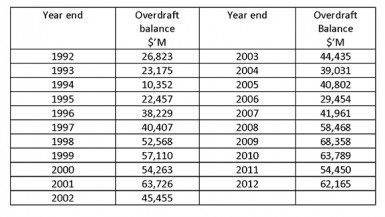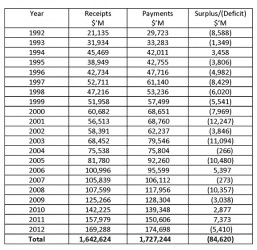Last week, we carried our first article since the new Administration took up office following the 11 May 2015 national and regional elections. We stated that an encouraging start has been made to mend our broken system of government and governance arrangements. We felt it was fitting for the swearing in of the new President to take place in the balcony of Parliament Building as a mark of respect for the highest decision-making body of the land. In his speech, the President vowed not to prorogue Parliament, in clear reference to what his predecessor had done to stave off a vote of no confidence in the government. He also urged that we put the past aside and work together to banish poverty, ignorance, fear and hatred.
We referred to a number of statements that the President had made during an interview with one of the media houses. These include:
 A promise to be not only a good President but also a President of all the people;
A promise to be not only a good President but also a President of all the people;- Wide-ranging consultations with key stakeholders, especially the political Opposition, during the preparation and finalization of the Estimates of Revenue and Expenditure;
- The use of local expertise to carry out forensic audits of several problem-plagued State institutions;
- State media houses to provide balanced coverage of views, events and activities and must no longer be viewed as instruments of propaganda for the ruling party;
- The need to rebuild a unified public service based on political neutrality, the highest degree of professionalism and service to the government of the day;
- Establishing a Public Service Staff College to train recruits in various aspects of public management to help them carry out their duties efficiently and effectively and for the purpose of mobility within the Service; and
- Return to collective bargaining agreements with the Guyana Public Service Union.
These are admirable statements which must be translated into action at the earliest possible opportunity.
Minister’s statement on the Consolidated Fund
The new Minister of Finance disclosed that the Consolidated Fund has been heavily overdrawn and that the explanation given for this state of affairs was that the Guyana Gold Board had failed to reimburse the Fund for advances granted to pay miners. The two bank accounts making up the Consolidated Fund are account nos. 400 and 407. The former, which ceased to be operational following the introduction of the Integrated Financial Management System in 2004, was overdrawn by $46.776 billion as at 31 December 2012, according to the latest available audited public accounts. It was also not reconciled since 1988.
The new Consolidated Fund bank account no. 407 was also found to be overdrawn by $15.389 billion as at 31 December 2012, giving a total overdraft of $62.165 billion. There were a number of other accounts relating to Ministries and Departments which reflected balances totalling $16.559 billion. According to the Auditor General, of the several other special bank accounts held at the Bank of Guyana, eleven accounts reflected balances totalling $4.140 billion which appeared to be funds that were transferrable to the Consolidated Fund. Taking these into account, and excluding the amount of $4.481 billion representing proceeds from 90 days Treasury Bills, the accumulated balance on the Consolidated Fund reflected a deficiency of $45.947 billion as at 31 December 2012. If the transactions for 2013 and 2014 are taken into account, including the unauthorised withdrawals from the Consolidated Fund, the deficiency in the Consolidated Fund could very well exceed $60 billion!

The overdraft situation can be traced back to 1992 and earlier periods. Shown below are the year-end overdrawn balances from 1992 to 2012:
An examination of the receipts and payments of the Consolidated Fund during the above-mentioned period does not indicate any transactions relating to the Guyana Gold Board and therefore it is incorrect to attribute the overdraft to indebtedness by the Board. Rather, the evidence suggests that expenditure from the Fund over the years exceeded revenue paid into it. For the period 1992 to 2012, the total revenue paid into the Consolidated Fund amounted to $1.643 trillion while expenditure totalled $1.727 trillion, giving a deficiency of $84 billion, as shown below:

It is evident that we have been living beyond our means for decades only to be rescued by borrowings from the issuing of Treasury Bills which attracts additional costs by way of interest charges. As at 31 December 2012, our indebtedness to banks, institutional investors and individuals in respect of Treasury Bills transactions was $86.552 billion.
Renaming and reorganization of Ministries
The number of Ministries has been reduced to 15 and there has been some re-organization, including the renaming of some Ministries mainly to reflect their functions. There have been some criticisms in this regard, mainly from the political Opposition but the President was quick to explain the rationale behind the changes. In relation to the Ministry of Local Government which has been renamed Ministry of Communities, the President is reported to have said, “We are not simply building houses or roads; we are building communities where human beings live and so it was renamed to emphasize the human aspect of Local Government. We want to see a place where human beings live, not just a collection of buildings.” The President was also criticized for an apparent lack of consultations in relation to these changes. He, however, dismissed this criticism as misinformation and cited the Ministry of Indigenous People which was renamed after consultation with representatives of the Amerindian community.
A key challenge relates to funding of these renamed/re-organised Ministries. The 2015 Estimates of Revenue and Expenditure are yet to be prepared and presented to the National Assembly. This is not expected to take place until August 2015. However, in accordance with Article 219(3) of the Constitution, the Minister of Finance is authorised to make withdrawals from the Consolidated Fund “as he may consider necessary for the purpose of meeting expenditure on public services until the expiry of three months commencing with the date on which the National Assembly first meets after that dissolution”. Unlike Article 219(1), which permits the Minister to authorise withdrawals from the Consolidated Fund until the expiration of four months from the beginning of the financial year pending the passing the Appropriation Act, withdrawals under Article 219(3) are not restricted to one-twelfth of the previous year’s budget for each of the three months in question. The key words are “as he may consider necessary”. Those words are not reflected in Article 219(1). The Minister will therefore have no difficulty in authorizing withdrawals for the renamed/re-organised Ministries from the date the Assembly convenes, contrary to the views expressed by a former President. When this happens, the Minister is required to present to the Assembly a statement of expenditure so authorised as soon practicable. When the Assembly approves the statement, the expenditure is included under the appropriate heads in the next Appropriation Bill.
The difficulty will be in the presentation of the 2015 Estimates of Revenue and Expenditure. However, this not unsurmountable in that the financial year could be split into periods, namely 1 January to 4 June 2015 (on the assumption that the Assembly will convene on 5 June); and 5 June to 31 December 2015. The first period will reflect the Estimates for the old Ministries while the second period will reflect the Estimates for the new Ministries. This has been done in the past when new Ministries were created during the course of the year. There is therefore no need to put on hold the funding for the new Ministries until the budget is passed.
Permanent servants and political neutrality
The President is correct from a public management perspective when he stated that public servants who went on the political platform for the 11 May 2015 national and regional elections are expected to turn in their resignations. This is the only ethical and professionally appropriate thing to do, since public servants are expected to display political neutrality. This concept assumes greater significance for Permanent Secretaries. Governments come and go, but it is the Permanent Secretary, the technical and administrative head of a Ministry, who provides the institutional memory for continuity. It is for this reason that the position is labelled “Permanent Secretary”. The political Opposition is therefore out of order for criticizing the decision of the Administration to terminate the services of two Permanent Secretaries. The heads of GUYSUCO and GUYOIL, among others, should do the honourable thing before they are given marching orders. This is the price one has to pay for violating the principle of political neutrality when in the employ of the public service. This principle must be adhered to without compromise if we are to have an efficient and professionally competent public service.



